Dedicated for US History college students to submit their required blog posts. Remember students! Create a personalized tag for your posts and tag each of them so they can be found and graded and each post needs to have 250 words.
Don't wanna be here? Send us removal request.
Text
Brandon Wolf - Repost of Post #3
For years, Syria has been devastated by an unending war of murder and destruction. Syrian refugees never wanted war, and many are escaping the bane of being in the war itself. This war, fought between the government and rebel forces, has taken the lives of over 250,000 men, women, and children. It is no surprise that so many people have decided to leave the country for others nearby. This refugee crisis is, in a way, very similar to the influx of Puritans in the 1630′s from England to the New World, and the migration of non-Puritans to the New World in the 1650′s. When Charles I reigned as King of England, he persecuted - and executed - those who did not practice the beliefs of the Church of England (Puritans especially). Many Puritans in England at this time decided to vacate England, or otherwise be killed. After the king’s execution, Oliver Cromwell essentially ruled England as a military dictator. Cromwell turned the tables, purging those who either supported the late king, or those who simply weren’t Puritans. Now, Royalists fled to the American Colonies to evade Cromwell’s wrath; meanwhile, after hearing news of a Puritan leader, many Puritans who migrated to the American Colonies moved back to England to regain what was theirs. Of course, after the death of Cromwell, the Royalists regained control (once again). The difference between the Syrian Refugee Crisis and the previously stated events is stark: while Charles I persecuted the Puritans and Cromwell purged the Royalists, only one side was being attacked at any one point. With the Syrian war, every civilian is feeling the effects of war and persecution; The Islamic State kills civilians in their territory, and the government bombs vast areas of land. Although Mexican immigration is not quite the same as the Syrian refugee crisis, there is something to consider: these people need shelter, food, and work. Although Donald Trump may claim that most Mexican immigrants are inherently criminals, studies suggest that Mexican immigration has actually lowered the crime rate throughout the continental United States. Trump also claims that countries like Mexico are not “sending their best.” Yet, it has been shown that a higher percentage of Mexican immigrants have high school diplomas than native-born citizens. I believe that we should take in anyone who needs a new country to call home. Many countries have restricted the flow of Syrians into their borders, and Mexican immigration can only help our economy.

0 notes
Text
Reynaldo Perez: Repost #7
The prohibition of alcohol and the ban on marijuana are similar in many ways yet different in other more emphasized ways. Some may even say that while the prohibition was a complete ban on the commercial, transportation or manufacturing of alcoholic liquors the bans on marijuana are not so strict in some states they are legal, to a degree, barring certain rules and regulation, and in some states a state tax. Though small bands that would come to establish speakeasies and criminal organizations took advantage of the ban illegally distributing alcoholic beverages to citizens to turn a profit, be it quite large, where there was no opportunity for said profit before. The very same illegal distribution that occurred during the prohibition is occurring today yet today it’s not so much with alcohol as it is with marijuana and another of restricted substances many criminal organizations big and small have taken advantage and made a profits selling marijuana to those who know and desire the product or who are curious and want to experiment with marijuana. But criminals are not the only ones making a profit some areas like Los Angeles have made it legal to purchase marijuana though you do have to pay a tax and can only share, not resell, and can only use the product in the confines of a private space. Some feel that just like alcohol marijuana is a harmful substance and while it’s widely known that consuming either product in excess is detrimental to one’s health as well as preforming dangerous and complex acts under the influence of said substances. Though it is strongly supported by researchers like Dr. Carl Hart neither pose a threat as long as the substance is used responsibly. In fact some may argue that marijuana should be legalized if not for the sake of those who suffer from diseases like epilepsy and spontaneous chronic seizures where marijuana is known to calm the effects of such ailments. Marijuana may be going down the same road the prohibition did with full legalization of the substance, of course with strongly enforced regulations, regardless of whether or not people do or do not want it to. In my opinion the two topics are similar and the argument against legalization is stressed around the danger to those participating in the use of the substance and those around the substance users. The push for legalization being structured around the fact that its already being used so the government might as well regulate as to make a profit and make users and passerby’s a bit safer. Though it is argued here and there to weather violence during the time of the prohibition stem from the actual ban many dispute the claim and believe that legalization would cut down on the violence. As previously stated I think both cases are similar and I also believe marijuana should be legalized today alcohol has been legalized for many years and though we still struggle to prevent accidents for alcohol abusers most responsible adults follow the guidelines set in place for the consumption of alcohol and it would not be that great a leap to think the same adjustments would made for legalized marijuana.
0 notes
Text
Roberto Olivera Post #9
Well for starters my view on American history before starting this course wasn't the greatest thing ever but as the course progressed and the more I learned it tended to interest me more on certain topics that caught my attention I really did learn many many things I did not know about or I was told back in high school that was not real and it was just poorly written in our books back in high school and it's sad to see all the rich detail that is taken out in those books honestly. Also I saw the change of the media and how they portray history now a days the cut a lot of the facts out and tend to put their own opinion or perspective or unknown facts into their explanation which leads to others like the viewers to just believe and change their views on this topic because of the way they are portraying it which is sad because it's like degrading the real truth to just make it fit to your saying and self satisfaction. If I had a chance to go more in depth with a specific topic I think it would be the whole United States aspect of it after the Declaration of Independence from Britain I would like to get to know a deeper aspect of how they decided on our government and which currency to have and how to have their money look like and what to have on it so on and so forth because all of that might have a deeper story behind it than what we know but that is just my opinion.
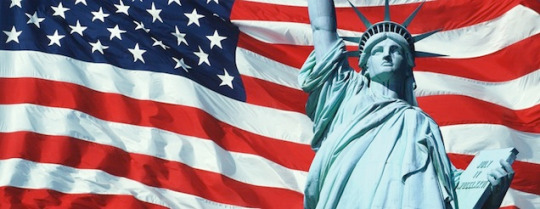
0 notes
Text
Isaac Lefler Post 9
Up until this corse I enjoyed history but hated it as a class. The mindless dates, names and facts without context took the joy and mystery out of the history. History is an elaborate story full of mysteries, plot twists, foreshadowing, humor, romance and betrayal. It tells of kings and slaves, heroes and villains. It tells how wars are won and what qualities are needed for a leader. A horse becomes a senator and a girl is burned at the stake. History is a story that passes though time holding both truth and lies. It takes a true storyteller to weed out the lies, build a foundation of context and to give life to a chapter in the story of man. This class came the closest to doing justice to the tale of time. Names and dates were not stressed with useless meaning. The context was laid with the skill of a journeyman. Truth was found and the tale was told. There was a bit of mindless politics, but still the story was told in a way in which disclosed the enthusiasm of the teller. The only thing that I see could be improved is if the story could be told a bit smoother, in a way in which the context and parallels ran together to make a perfect image of times past, but that comes with practice and experience.
As for the topics themselves I would like if they could be split into more than one class. We are told of the gold rush and the or again trail, but they are just glossed over almost as if they were just bits of context just needed to tell a ‘more important' story. I would like if all topics were able to take the spotlight at one point in time. They each hold whole stories of their own waiting to be told.
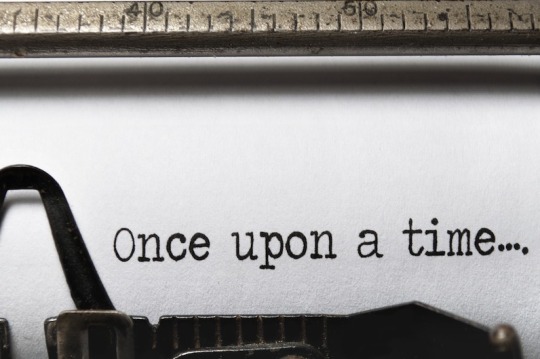
0 notes
Text
Jess Post #9 TuTh 8AM - 9:15AM
My general opinion of the course was that I learned a lot more than I assumed I would. People are taught US History in America from elementary school stages and it's always portrayed in this "we were always right" kind of light because we weren't there, we don't know what really happened, and no one really wants to admit that the history of their culture is kind of a mess. The reality of the situation is that every culture's history is kind of a mess and this course helped me take an objective look at history and to think beyond what I've been taught, beyond what I was being taught in the course, and to consider a wide variety of sources to gather information on and piece things together myself.
One of the best things about this class was the mix of new and old. Not only did we get historical information but we were asked to relate it events that were happening right now, events that would eventually be history for other people to learn. It was a really nice tie in that helped me remember things taught in class because I had a present point of reference to tie it all back to. It also helped me understand the situations a bit better.
Because let's face it, history in general is a mess. People react based on emotions, based on misinformation and assumptions and opinions and it's really hard to pinpoint why so-and-so did such-and-such because we don't know what was going through their head at the time. By having a present point of reference we could better understand what people back then were thinking because we could understand what people are thinking now during similar events.

History is cyclical, things and themes end up repeating themselves. It was interesting to see how our history mirrored current events. Like the idea of immigration and how it's currently a large subject that's still up for debate. People's rights and how others are still fighting for their rights because there are still things that need to be fought for and attained that weren't fully attained the first time.
Another part that I liked was that it didn't just go over the American side of history even though it centered around American history. In order to understand the history of one country you have to look at the history of the other countries that helped shape it and what was going on with them at the time. This class looked at what was going on over in Europe and how events there shaped, spread, hindered, or otherwise impacted events that were happening here.
Not only that but we actually got to start from the beginning. It wasn't when America was first formed but how it was formed and what influences were already there when things were starting out. It wasn't just the Europeans that were here, it wasn't just Christopher Columbus, it wasn't just the British that first made their impact here. The course also brought on a non-biased view of the situation, showing that maybe these people weren't all they were cracked up to be when we were learning about them in elementary school.
There's really nothing I would purposely go and research more about, though, but that's just because I'm not really that interested in history. Most of my historical interest is in WWII. Although the mystery of the first British settlement in America and the whole Croatoan thing really sparks my interest but that's probably because it's a mystery that still hasn't been solved.
0 notes
Text
Brandon Marcantoni Post #9
If we could have gone more in depth on one topic in particular I would have enjoyed to spend more time on the Civil War. I took a class in High School devoted specifically to it and learned a lot of cool things but it felt kind of watered down, probably because of the restrictions to high school. It would have been cool to learn more about the less told stories of the nation's most brutal war.
Over the semester I learned many things about a side of American history that I wasn’t previously exposed to. I enjoyed the side stories and how the rest of the world influenced the shaping of America. Too often I think people underestimate the impact the rest of the world had on our young nation.
My understanding of American History has changed quite a bit. In high school all we learn is that America's the best and if you don’t like it, too bad. I enjoyed learning about the cruel way America conducted its business to get to the top of the food chain. I enjoyed getting to learn about the stories of our founding fathers and actually getting to see a personality behind them. For example, I always knew Ben Franklin was a pretty smart guy, but it was awesome to hear about how he was a total badass that spoke five different languages, was a world renowned scientist and a ladies man. I also had no clue we ever invaded Canada, and thought that was an interesting.

0 notes
Text
Kyler Post
I’d have to say my understanding of American History has remained largely the same, but through no fault of your own. I have an extensive interest in learning and understanding the world better, and classes like this one give me that opportunity. But I can say that what information I learned in class was well worth my time. One bit of information was that I never thought about how long it took for the US to finally descend into a civil war post revolution. That has given me a new perspective on emergent governments and states.
As far as exploring a topic in greater depth, I’d definitely want to learn more about how the American civil war was delayed as long as it was. It makes me think about what would happen if there was a (god forbid) civil war going on in America today. I wonder if the same circumstances were to happen with today’s technology, how long it would take for the schism to lead to war. Would things such as advanced and instant communication and weaponry speed or slow the onset of war? Here’s hoping we never find out, huh?
I haven’t read or watched any pieces of historic fiction, but I have been able to see a lot of “America Fuck Yeah” sort of media in a different light. I myself never have paid much mind to it, but now I see a vast majority of it as trite and dull. It does feel good to celebrate our history, but America is not as special as some feel it is. We’re a powerful nation, we’re a rich nation, but not a special nation.

Brusting my bawrs here hans blix
0 notes
Text
The Good,the Bad and Ugly (1966) -Extra credit
Irene G.Extra credit
Thist movie is one of the best movies of the cinema history, it has everything and it lacks nothing for a fiction movie: the best actors for the characters; the best editing, the best music which is not about nice or fashion music, but about expression and synchronization, and the best plot which is not simply and naïvely historic accuracy.
Before that movie, most American people believe in a history or world exclusively black and white or formed by only two sides, well and bad. This movie, and some military defy and resistance by underdogs during the USA involvement in the Vietnam conflict, help to America to be more world-wise about the history, and understand that history always involves good, bad and ugly aspects in all sides.
This movie is not really a history movie, it is about the history of three men that are involved in a long journey where the scenery is the civil war searching a buried treasures of gold coins.
The movie is not an example of history accuracy, for instance the guns used for the main characters were introduced 30 years after of the period represented in the movie, the dynamite did not yet existed because it was invented 40 year after the date of the bridge explosion in the movie, the main battle location is also false because all big battles in Texas during the civil war were near to the cost.
But the movie is beyond the academic history or historic timeline because that movie shows the real historic world were nothing is entirely pure and clear but a mixture the good, bad and ugly causes and effects.
So, today the phrase “good, bad and ugly” is commonly used to communicate the diverse ethic quality of the components of the things, from politics to history, from economy to emigration. Before that movie most people believed, for instance, Russia is bad and ugly and America is good and beautiful, after that movie more American questioning and have a more sophisticated way to judge the historic events.
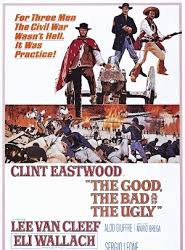
IGV.History
0 notes
Text
Vishal Shikarpuri Gangs Of New York Extra Credit
The third movie I chose for the extra credit assignment was the Gangs of New York. This movie takes place during the period of the Civil War. Throughout most of the film, it was part of the Civil War where President Abraham Lincoln had ordered there to be a draft. This movie showed how the lives of the immigrants who were coming from Ireland to New York we’re treated by the natives new Yorkers who were born and raised them. The movie shows how they’re where many conflicts between the different groups. Many New Yorkers were opposed to the draft and in the film it showed how they're even rants among people how they should secede from the union. In one instance of the film, it showed how immigrants were getting off the boats from Ireland and right directly going off to war. It showed that as soon as they got off they were handed papers saying they Were now citizens and right after handed draft forms saying now that they were citizens they had to fight for their country. Some of the tactics used by the recruiters for the Union Army were saying they would get three meals a day Plus pay with a fifty dollar signing bonus. Towards the end of the movie, it showed the riots by the lower-class and middle-class people attacking the Rich class who were able to pay their way out of the draft also done tax on The police and recoupment centers. In the end, the draft standards were meet on getting enough people. The riots had caused many death by people fighting amongst themselves and also from the attacks by the army and the police. According to the movie it took almost four days for the riots to settle down. This was the first and not last draft the Untied States government has held.
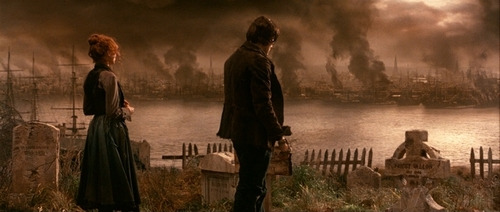
0 notes
Text
Vishal Shikarpuri Killing Lincoln Extra Credit
The Second Movie I Picked to do my review on was the 2013 Killing Lincoln. This film was based on the assassination of our 16th President Abraham Lincoln. This film shows the extraordinary events that the President took his last hours and also what his assassinated John Wilkes Booth also did. The movie talked the real way Mr. Booth was planning to deal with the president. It was to kidnap initially him, which isn’t talked about much that often sees how that wasn’t what happened. The movie also discusses how there was a larger portion of the country who weren’t fond of the President. There were also many people even from his Republican party who weren’t happy with the way thing in America was happening. The movie talks about the first time there was an assassination attempt on the President life. The first and not last time was when the President was riding his horse in the night when there was shot fired at him from the distance. This bullet had hit the Presidents hat but missed his head. The President had decided that it would be smart and kept this attempt a secret commanding his servants not to say anything to anyone. Another fact that I learned from this movie was about how John Wilkes Booth was an actor and if he didn’t commit this horrible crime could of and would have been one of the greatest players of his time. This says a lot how one of the most famous people who know people was able to kill the President of the United States. Watch the last hours of the Presidents life was morose. They had showed how his body needed to be taken to the closest house saying he didn’t have time to make it back to the white house. Another thing, which was noted in the movie, was how none of the accounts from the people who were there matched to one another. In the end, John Wilkes Booth was captured and killed, and all of his conspirators were put in prison for life and or sentenced to death.
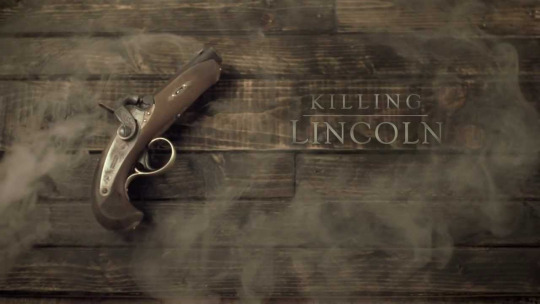
0 notes
Text
Eric Bressler Lincoln
The second movie I viewed for this extra credit assignment was “Lincoln” directed by Steven Spielberg. I believe this was an excellent portrayal on the type of person Abraham Lincoln was, and truly showed what challenges he faced when trying to abolish slavery. Both films I watched were directed by Steven Spielberg, and continue to amaze me that each film was made fifteen years apart and both were so captivating to me. What stood out to me most was the type of character Lincoln was himself. He was a gentle man, very knowledgeable and well spoken who read a numerable amount of books as he quoted many throughout the film. One thing Lincoln did was he always did the right thing. And by this simple mindset, doing the right thing led to great things on which he accomplished. His decisions were never influenced by the people he governed, or something to gain popularity of the people, he was a genuinely good and humble man who always did the right thing, and thus resulting in popularity and his recognition. But in the film he never truly cared about any of that, his concerns were making America a better place. As the saying goes, “Work hard in silence, let your success be your noise.” epitomizes his character. A scene that I really enjoyed was Lincoln’s urgency to get two votes procured for the abolition amendment to pass. One of the men asked how and Lincoln didn’t even want to explain himself, he made it clear that it must get done by all means, and he stated it as an “order of the President of the United States” as almost a way to clarify is position over the men and show how urgent and necessary it was to get those two votes procured. In class we went over Lincoln briefly only really going over his accomplishments, and his death, but I believe this film helped me see the true character Lincoln was and his way / methods of accomplishing his goals.

0 notes
Text
Austin Carter Post #9
Until taking this course, I held a passive understanding on the concepts and overall importance of history. I was much more concerned about other things such as math and science that history took a back seat. Upon completion of this course, I now realize how incorrect and ignorant that mentality was. History is a very important tool that can allow us to view mistakes that should not be recreated. It allows us to look towards the people of the past in order to make moral judgements on how we want to live as a society. I became much more engaged in the subject when I started to view it this way. The Tumblr posts where we compared history to the events of today was eye opening. How common history seems to repeat itself is alarming. If I was given the chance to explore one topic in American history in greater depth, it would be the concept of slavery. I am interested to learn how such a barbaric and cruel practice was ever adopted by humanity in the first place. Why did it take so long for us determine it as morally wrong? What are the causal factors that led to its existence? History is used as a kind of separator in a lot of popular media it seems. Popular media portrays the events of the past in ways that seem meant to create groups instead of bringing people closer together. This seems like a gross misuse of the power that history holds. There is a lot of false information spread based on mythos instead of actual fact, such as how we view Christopher Columbus.
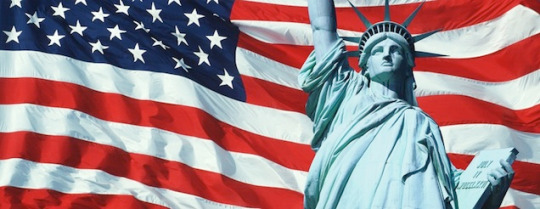
0 notes
Text
Reynaldo Perez:Where Will i Post Opinions On history Now?
The content of this class in the last couple months have been reeling but I am satisfied to say I have learned as much as I hoped to and maybe more than I can successfully retain. From Viking explorers to Spain’s and Britain’s long rivalry throughout the late 1400 all the way to the 1800. Not to mention the overview of Native American cultures and their role in the settlement era of the United States, or as native Americans would come to see it as an era of invasion. I also received a new outlook on history whereas a lot of the actions, like finding a shorter route to India or the Reconquista, people took that effectively changed the world, in my eyes before were cold and calculated simply for reasonable purposes yet in actuality, at times were heavily driven off of emotion weather that emotion be love, greed, impatience whatever. Though if given the chance I would like to delve deeper into the personal lives of exploratory figures like pan filo de Narvaez and Ferdinand Magellan as well as the minds of men like Francis Bacon as well as any of the renaissance or enlightenment figures would be really interesting to study and really get into why they had passions for what they did and what drove their creative and innovative thoughts. Also seeing if the previous history events affected these men in a way where if not for said preceding events they would or would not be the same people. Yet I am pleased to see that much the world today were shaped if just being guided the hand of rulers by courage’s explorers of different countries and thinkers that are basically the spine of not just social but educational and judicial, and financial systems.

0 notes
Text
Eric Bressler Post 9
In the beginning of the school year my interest in US history wasn’t all too high but gradually through the year my interest progressively gained much, much more. I feel like the main reason for this was is that I realized specific events in history have direct correlation to why things are the way it is today. For example what played a major role in why populations of people are so dense in separate areas of countries based on geographical features such as mountains, oceans, and climate / weather. It was interesting learning that early civilizations tended to explore east to west rather than north to south, because the change in climate was more dramatic. I enjoyed how throughout the course our lectures were consisted of visual aid, and I believe that gave me a much better understanding on some topics I had trouble with. My understanding of American history is much more clear prior to what I had known before from learning US history my Junior Year of High school. In high school it was all just names, dates, and facts and this year everything we learned was told in an entire story told in chronological order, with one event based of the other. I feel like it is crucial for everyone in society to know the country they live in’s history because they all have say and power to make change in what’s going on, although it may not seem like it by just their own voice. Major issues and be avoided / solved by simply knowing some history because it has likely occurred in the past
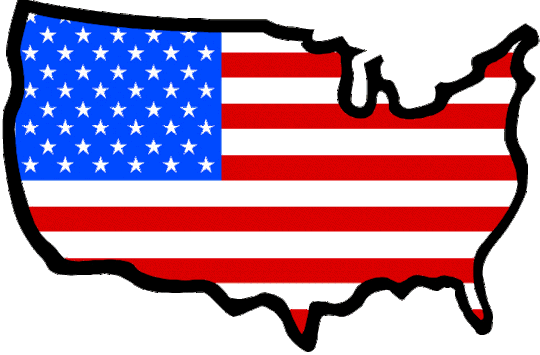
0 notes
Text
Daniel Brown - TR 8:00-9:15 - Tumblr Post 9
When this class started, I had never had much of an interest in United States history prior to the early 20th century. In my head it was Puritans, cowboys, and that’s about it. As the course has gone one, I realize just how wrong I’d been. Between everything we’ve covered, I’ve learned that pre-1865 America was a place where life was far from perfect but the future was full of possibilities.
As a whole, the specific subjects we’ve studied that have been of the most interest to me have been the Salem Witch Trials, George Washington, Andrew Jackson, and the Emancipation Proclamation. The Salem Witch trials stood out because I never knew how they started. I had always assumed it was due to Puritanical paranoia but, upon learning the origins of trials, they have definitely become a fascinating example of how a con job completely spun out of control. George Washington had such an interesting way of thinking when it came to the Presidency. I love how it never went to his head and how he remained the exact same person while standing as the leader of a new nation. Andrew Jackson was, as near as I can tell, our only president to be a complete and utter psychopath. After learning about some of his more outrageous acts in class, I’ve done some additional research on my own and he was…well, let’s just say that I’m shocked that so many people were against removing him from the twenty dollar bill. The Emancipation Proclamation’s impact has been completely changed by history and learning the actual story behind, what was more of a strategic move than anything, has been very eye opening to me. The fact that it didn’t actually free anyone but was done specifically to make it more difficult for the Confederacy to gain support from England and France was, in my opinion, a stroke of genius on the part of Abraham Lincoln. It may be more romantic to believe that that one act freed the slaves but the real story is definitely the more interesting ones (especially since we have the thirteenth amendment that we can still romanticize).

The course has really done a lot to change my understanding of history. It’s really helped to cement my belief that, in order to know the real story behind anything (even current events). If given the chance to study any topic in more detail, I’d have to say it would be the one that I’ve spent the most time studying more of on my own time, which is Andrew Jackson. I read an article recently that summarized a study Duke University did in the mental health of past U.S. Presidents and was shocked to see that they gave him a clean bill of health, despite him being “maniacally competitive.”
In general, I would highly recommend this class for anyone who has even a passing interest in history. With the wide array of topics covered and the huge range between highs and lows that the country has faced, there really is something for everyone for this country that’s been more interesting than any tv drama.

0 notes
Text
Sean Arnold-Post 9

This class changed the way I looked at American History. It showed me the darker side of our history. Normally in all my history classes they portray America as perfect and that we have never done anything wrong, when in reality that is not the case. I like how the class was never sugar coated at all, we learned what really happened during some events whether they were good or bad. I love the fact that this class used videos to help with the learning process, it was also nice that some of the videos we actually modern and from shows that I have watched. I was really interested in learning about the American Revolution, because in my other history class we would never go into extreme detail on the subject. I was glad to learn more about the presidencies of George Washington, John Adams, Thomas Jefferson, and Andrew Jackson. Especially Andrew Jackson because I all wanted to know what he did when he was president. I never knew that he was a complete nutcase and that he is the reason for the big economic crises after his presidency. I do however wish we could more in depth about the American Civil War since we did not have enough time to go over it fully in class. Wish we could have talked about more battles thought out the war and the strategies that were used to win the battles. Overall I say I really enjoyed myself while taking this class, though I could have done without the worry of a fill in the blank pop quiz.
0 notes
Text
Catherine Treskvich Post #9
Overall I actually enjoyed this course a lot more than I was expecting too. In all honesty I used to hate early American History simply because we covered it every single year from kindergarten to 6th grade. It wasn’t until 7th and 8th grade that we actually moved passed the Civil War and so I always hated learning about the Civil War. However, after taking this class I actually really enjoy learning about early American History. I’d definitely like to spend more time studying 1800s politics, it feels like everything was a sitcom.
With this course I’ve also learned to take historic facts with a grain of salt. Meaning, I should dig deeper when someone says something that’s supposedly a fact. Why? Because things are almost always sugar coated, patriotism usually gets in the way and because history is written by the victor. For example, growing up I was told Christopher Columbus was some hero and the only one who found America but after taking this course it seems like that wasn’t true at all. In history classes growing up they made it seem like all the wars we fought between 1700 and 1800 were defensive. But I now know that the Mexican-American War was really started by us. It seems like America just kind of goes looking for trouble.

0 notes